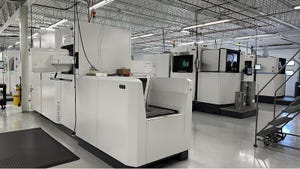February 27, 2004

Lean manufacturing is an industry buzz word, but the technique has to extend all the way through a corporation's supply chain if the benefits are to be fully realized. That requires close interaction between vendors and suppliers.
"We all have to make sure all our suppliers have the same quality levels and efficiencies we do. All inefficiencies end up sooner or later passing through to the customer," says David Nelson, president Global Supply Chain Management at Delphi Corp.
Toyota and Honda are leading examples of the new lean manufacturing techniques that eliminate inefficiency, Nelson says. Delphi itself has made substantial improvements, says the Thursday morning keynote speaker. In one plant, quality defects have declined 71 % since May 2002, while inventory levels have been trimmed 83%.
To make sure its suppliers understand the benefits and techniques of improving efficiency, Delphi has placed its engineers in supplier facilities, where the Delphi supply engineers do largely the same jobs they perform in Delphi buildings. But the improvements are quite noticeable at facilities around the globe. "We're seeing double digit improvements in most areas, and most of those numbers don't start with a 1," Nelson says. Some improvements are as high as 50%, he adds
Nelson offers a number of incentives for manufacturers who work closely with their suppliers, helping them improve their efficiencies by operating leaner. Reduced costs and shorter lead times are leading benefits. One key way managers can improve efficiency is to realize that "questioning things encourages thinking," he says. Manufacturing personnel can play a big role in helping companies change their cultures, he adds.
About the Author(s)
You May Also Like





